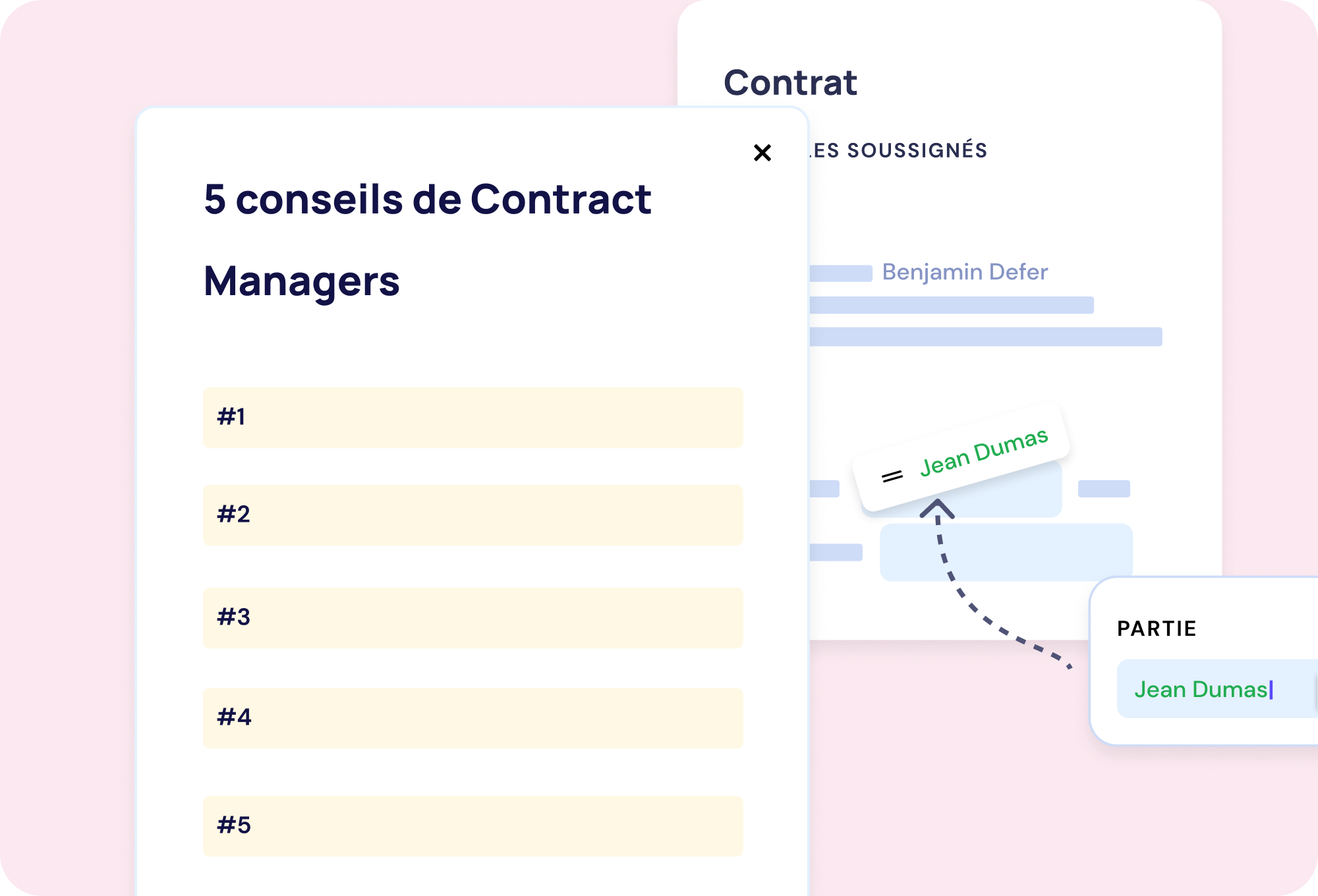#1 Focus on the relational aspect of the contract
According to Maëlle BillantAccording to the article "The Contract Manager" that we received on Words of the Lawyersthe Contract Manager is a conductor.
"Its mission is to compensate for the incompleteness and imperfection of a contract by promoting relational adaptability or in terms of changes, evolutions of the contract. The contract is an evolving tool that evolves just like the project. Projects are complex, you need to have someone who is able to lead this change and move forward as the project evolves."
According to Maëlle, the Contract Manager must :
- Promote knowledge of the contract
- Encourage the evolution of the contract according to the evolution of the project
- Negotiating and looking for the interests of the company for which it works and of the co-contracting company: it is the search for the common interest to find adequate solutions for both parties.
Maëlle's vision on this subject is very clear: there is an evolution, even a revolution, in the way we should consider the contract. According to her, the contract is no longer really transactional ("what counts is what is written in the contract, the object, the result"). Today the contract is more relational, the relational aspect must be taken into account. Often the failures in projects are failures of human relations.

| 🎙 The episode dedicated to Maëlle Billant (From Lawyer to Contract Manager) is available on all listening platforms. |
#2 - Do not neglect the annexes
"I take the piece of paper and try to get as much useful information out of it as possible."
Like a mop full of water, the contract must be wrung out to the last drop, according to Emmanuel Tannay, Contract Manager at Schneider Electric, the world leader in energy management and automation.
In the episode we dedicated to him, Emmanuel confided that "The 'piece of paper' is not only the 20 to 70 pure contractual conditions. It's also the annexes. The HSE annexes, the annexes relating to change orders, the annexes on price breakdowns: all types of annexes. You have to take these annexes and try to highlight the most important elements to explain to the project team what the rules of the game are in the context of the execution of this project. After that, it's all about trying to influence them to try and keep them within that framework!

| 🎙The episode dedicated to Emmanuel Tannay (Never give up) is available on all listening platforms. |
#3 - Knowing how to terminate a contract that is not going well
Ending a contractual relationship that is going badly is not easy when financial and operational issues and risks are at stake. What may appear to be a failure is sometimes necessary for a project to succeed.
The equation is very simple for Emmanuel Tannay, "you also have to know how to put an end to a contract that is going badly. You have to be able to estimate, to make people aware of the financial stakes if it doesn't work out, of the deadweight loss that could be generated by stopping the contract straight away, of what you can or cannot recover by going to court.
Emmanuel shared his experience of this type of situation with us through an example: "We had contracted a supplier who was unable to deliver. He was to construct prefabricated metal buildings but was unable to meet the welding quality requirements. He was therefore unable to fulfil the contract. We preferred to terminate this contract, we went to a plan B despite the loss involved."
#4 - Going beyond the contract
Last but not least, Emmanuel's advice: "You have to be "legally non-integrated".
According to him, "just because you are a Contract Manager and the contract says there is a framework to respect, it is not imperative to respect this framework.
Contract for contract's sake is the best way to break the relationship with a customer.
You have to be tough, but over the years you calm down and understand the importance of the customer relationship. Even if the customer-supplier relationship is bad, it is still important."
💡 Good to know : Emmanuel is also a member of the Tools & Process Commission of theFrench Contract Management Association which offers a wealth of practical resources to help you evolve in your practice. Also, these guides are open to all, whatever your profession. |
#5 - Be pragmatic in the drafting of your clauses
During our first exchange with Nicolas Le Floch, Contract Manager Siemens Mobility, Nicolas had a particularly interesting sentence, which we often hear from Contract Managers: "If I were a lawyer again, I would never write a contract in the same way".
This sentence echoes the role of the Contract Manager and the difference between Contract Lawyer and Contract Manager.
We asked him in the episode we devoted to him on Paroles de Juristes.
Here is his answer: "You have to be practical. In my previous practice as a lawyer, I may have lacked pragmatism.
When you describe a part of the project that will be carried out by people, you really have to be practical. The notice period, the number of people, etc. Don't go into too much detail, trust the project: they will take ownership of the clause, they will make it live. I think there are things that will no longer be my battles as a contract writer. This would allow me to focus on more traditional things that require as much detail, such as the penalty clause for delays, the warranty clause, etc. You can't foresee everything. The contract is written at a certain point in time and the project has its life cycle."

| The episode dedicated to Nicolas Le Floch (Accepting a crisis is an adventure) is available on all listening platforms. |
Choose to combine contractual performance and legal certainty
No commitment, no credit card.



